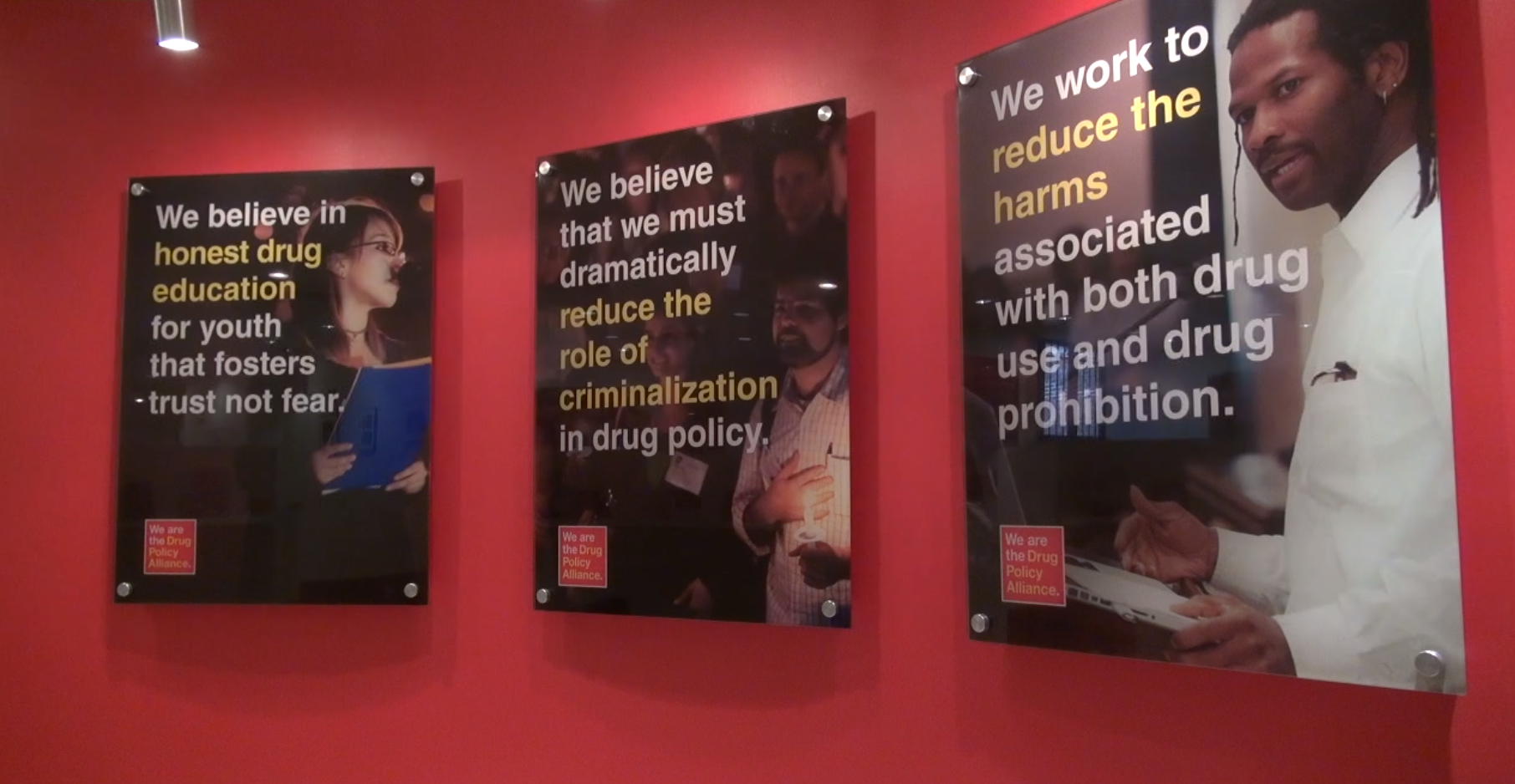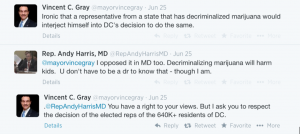WASHINGTON– Not satisfied with decriminalization, proponents of pot are pushing for full legalization on the streets of Washington. Starting Thursday, decriminalization takes effect in D.C., and those caught with the drug face a $25 fine instead of a criminal offense.
But for some, that’s not enough. Last week, the D.C. Cannabis Campaign submitted 57,000 signatures, double the required amount, to put an initiative supporting legalization on the ballot in November.
The initiative would allow adults over the age of 21 to carry up to two ounces of marijuana and to grow six plants in their home.
“Public opinion is very much in support of Initiative 71, or the legalization of marijuana, which is currently polling at around 63 to 65 percent,” said Dr. Malik Burnett, the policy manager at the Drug Policy Alliance and the vice chairman of the D.C. Cannabis Campaign. “We hope to push that number as high as we possibly can and we feel confident that if the voters get the opportunity to vote on this in November, they will overwhelmingly support it.”
Because ballot initiatives cannot change the funding structure of the government, Initiative 71 would not legalize selling marijuana. However, the D.C. Cannabis Campaign is hoping their initiative will pass in conjunction with a bill sponsored by Councilmember At-Large David Grosso to fully legalize the drug, allowing retailers to sell marijuana.
Proponents of legalization say the District could save millions in enforcement costs each year if they reduce the penalty for possession.
According to American Civil Liberties Union estimates, in 2010, the city spent nearly $18 million on police enforcement, more than $6 million in legal costs and more than $2 million imprisoning those convicted of marijuana-related violations.
Supporters say full legalization could also generate millions of dollars in tax revenue each year.
Colorado, the first state to legalize marijuana, collected $16 million in the first five months of legalization. While the District’s population is only 12 percent of Colorado’s, supporters are starting to do the math.
“It’s probably about $3 million in the first six months of legalization if we’re only talking about District residents participating in the program and nobody else—no one from Virginia, no one from Maryland,” Burnett said.
D.C. Councilmember At-Large David Grosso proposed a bill last year in City Council to fully legalize and regulate marijuana in the District. His legislation proposes a 10 percent tax on recreational marijuana and 6 percent on medical marijuana, which was legalized in 2010.
“We’d first take the money we earned from that and we’d apply that to the regulation of marijuana so all the tracking of the plants, where it gets sold, who gets to sell it, and then after that there would be some money left over,” Grosso said. “We’d attribute that to a lot of programs here in D.C.: restorative justice, diversion programs, youth courts, things of that nature.”
Not everyone is convinced that legalization is good for the city. Rep. Andy Harris (R-Md.) opposes decriminalization and legalization for medical reasons. Harris introduced an amendment to an Appropriations bill that defunds Washington’s ability to implement decriminalization.
“As a physician, I have read study after study on the devastating effects of marijuana use, especially on developing brains of teenagers… When I became a physician, I took an oath to do no harm, and decriminalizing marijuana will harm D.C. residents, especially youth. That’s why I took steps to stop its implementation,” Harris said in a statement.
However, D.C. Mayor Vincent Gray, who signed decriminalization into law in March, challenged Harris last month in a Twitter exchange, saying Harris represents a state where marijuana isn’t criminalized.
Even if Initiative 71 gets on the ballot in November and is approved, the law could be shot down if Harris’s amendment is passed with the 2015 budget.



